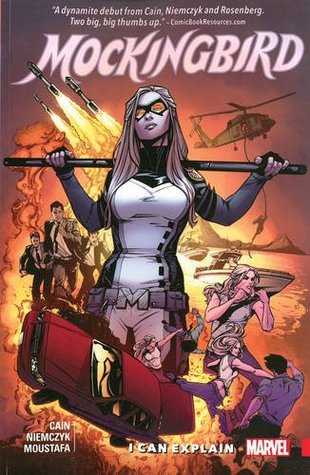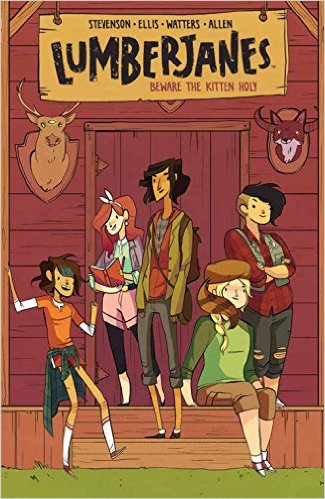Book Review:
Chelsea Cain, Kate Niemczyk, Ibrahim Moustafa
Marvel, 2016
Grade: A+
Bobbi Morse, A.K.A Mockingbird, is a superhero. Not that her bosses at S.H.I.E.L.D or her former idols on the camera-facing core lineup of the Avengers tend to notice much, but she is a scientist and martial artist who helps people for a living. She particularly excels at talking down mutant twelve-year-old girls who can’t get anyone else to explain what’s happening to their bodies, and bailing out Hawkeye, who’s totally not her boyfriend.
The Downside:
While I find it works well enough, the non-linear presentation of these five issues may frustrate many readers and doesn’t add exceptionally much.
The Upside:
Bobbi exemplifies the best possible version of the terms “attitude” and “snark,” in potently concentrated doses. She’s the angry, undervalued female superhero who knows exactly what she has to be angry about and how to point it out in a few sharply chosen words at exactly the right moments, before continuing to get the job done.
The sarcastic sense of humor here is constant without ever feeling forced, and toys with Marvel conventions, not only about gender, but about such tropes as hordes of faceless non-human enemies (allowing heroes to show off their fighting skills without looking like jerks) and the dubious morality of S.H.I.E.L.D’s shadowy government status.
The dysfunctional relationship between Bobbi and Hawkeye is the real treat of this volume, and detracts nothing from her character. Quite the opposite. This is where things gets complicated, and we get to see, as cool as she is, why Bobbi Morse is not someone you want to be. Or be anywhere near.
Bobbi is a bad significant other. Really bad. Almost as bad as the average male superhero, but unlike those guys, her story doesn’t pretend otherwise. She’s that aloof, dishonest, emotionally abusive partner who will nevertheless show up to save you whenever you need it, the one you can’t help liking in those rare moments when things are going well.
In other words, she’s an action hero with a love interest.
Depending on how much patience you have for the abundance of bad male partners in fiction, Bobbi can be viewed either as a welcome reversal, giving the woman a chance to be the layered jerk for a change, or as a commentary on why this archetype is so readily accepted the other way around in the first place.
Altogether, this is a series I’ll definitely be following for as long as it- What? It’s already been cancelled?
Typical. Right, Bobbi?
Agree? Disagree? Comments are always welcome (just keep it civil, folks)! Or keep up with my fictional musings by joining me on Facebook, Pinterest, Twitter, or by signing up for email updates in the panel on the right!








